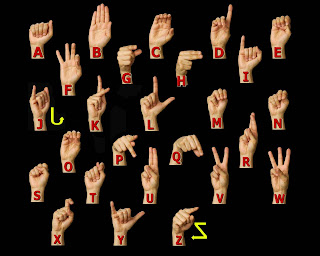Use the immersion technique. Visit the country where the target language is spoken, and immerse yourself into the culture. This is by far the fastest way to learn a language, but it isn't always possible. If you are unable to visit a foreign country, hang out in a local area where people speak your target language. Befriend native speakers of the language and learn from spending time with them.
Listen to language tapes and CDs constantly. Listen to tapes when you drive, lift weights, walk or just hang out around the house. Listen to them around the clock, if possible. The more you expose yourself to the target language, the quicker you'll learn it.
Build your vocabulary of the target language. Every language has about 50 to 100 words that should be learned immediately. This essential vocabulary includes prepositions, interrogative words, adjectives and a few nouns. Learning these words helps you understand many others through context.
Study vocabulary and phrase books. Memorize lists of vocabulary words, and review them regularly. Study new words and phrases out loud rather than silently. Review the vocabulary lists daily for 2 weeks, then review the vocabulary 3 weeks later. Carry a phrase book wherever you go, and read it as much as possible.
Other tips n tricks:
1) Spend the time!
By far the most important factor is how much time you are immersed in the language. The more time you spend with the language, the faster you will learn. This means listening, reading, writing, speaking, and studying words and phrases. This does not mean sitting in class looking out the window, nor listening to other students who do not speak well, nor getting explanations in your own language about how the language works. This means spending time enjoyably connected to the language you are learning.
2) Listen and read every day!
Listen wherever you are on your MP3 player. Read what you are listening to. Listen to and read things that you like, things that you can mostly understand, or even partly understand. If you keep listening and reading you will get used to the language. One hour of listening or reading is more effective than many hours of class time.
3) Focus on words and phrases!
Build up your vocabulary, you’ll need lots. Start to notice words and how they come together as phrases. Learn these words and phrases through your listening and reading. Read online, using online dictionaries, and make your own vocabulary lists for review. Soon you will run into your new words and phrases elsewhere. Gradually you will be able to use them. Do not worry about how accurately you speak until you have accumulated a plenty of words through listening and reading.
4) Take responsibility for your own learning!
If you do not want to learn the language, you won’t. If you do want to learn the language, take control. Choose content of interest, that you want to listen to and read. Seek out the words and phrases that you need to understand your listening and reading. Do not wait for someone else to show you the language, nor to tell you what to do. Discover the language by yourself, like a child growing up. Talk when you feel like it. Write when you feel like it. A teacher cannot teach you to become fluent, but you can learn to become fluent if you want to.
5) Relax and enjoy yourself!
Do not worry about what you cannot remember, or cannot yet understand, or cannot yet say. It does not matter. You are learning and improving. The language will gradually become clearer in your brain, but this will happen on a schedule that you cannot control. So sit back and enjoy. Just make sure you spend enough time with the language. That is the greatest guarantee of success.




